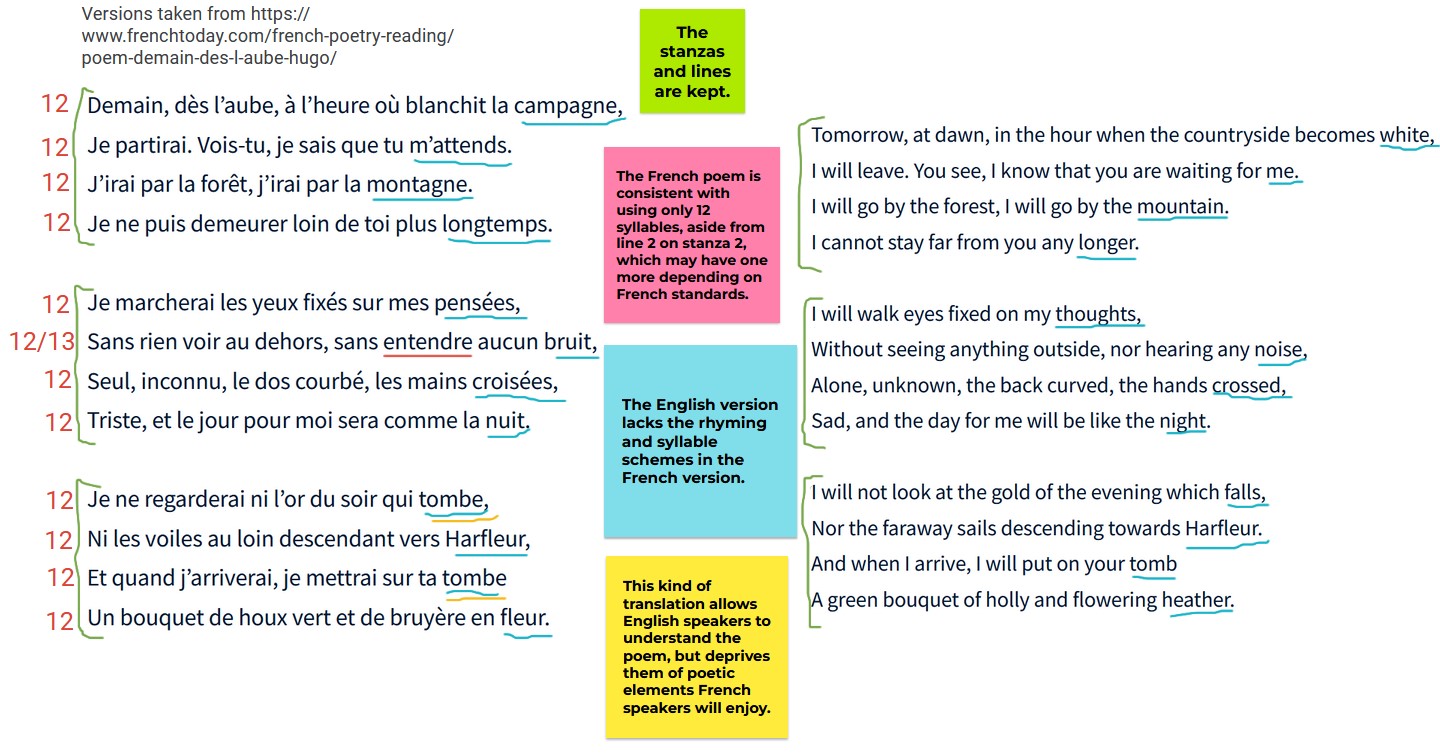Gillian Doolittle, Quinn Foster, Justin Palmer, Cameron Robinson
Group One: Languages
Central Question: What is gained and lost from a poem through translation?
Jabberywocky by Lewis Carrol
Jabberwocky by Lewis Carrol is a poem composed largely of nonsense words that manage to remain understandable. This poem serves as an interesting introduction to the ideas of language, translation, and how the expectations of a reader affect the meaning of a poem or even words themselves. The fact that Jabberwocky can be understood despite its usage of nonsense words suggests that there is some kind of intrinsic understanding in language that is separate from the meaning of individual words. There are passages in Jabberwocky where part of speech and context easily provide a potential translation for the nonsense word. On the other hand some words could be interpreted a number of ways but the general story of the poem remains the same. While details are lost through lack of understanding, the most fundamental elements of Jabberwocky's story are preserved even without being able to examine word choice with nuisance. This scenario provides interesting insight into the meaning of words in poetry which can help demonstrate the effects of translation.
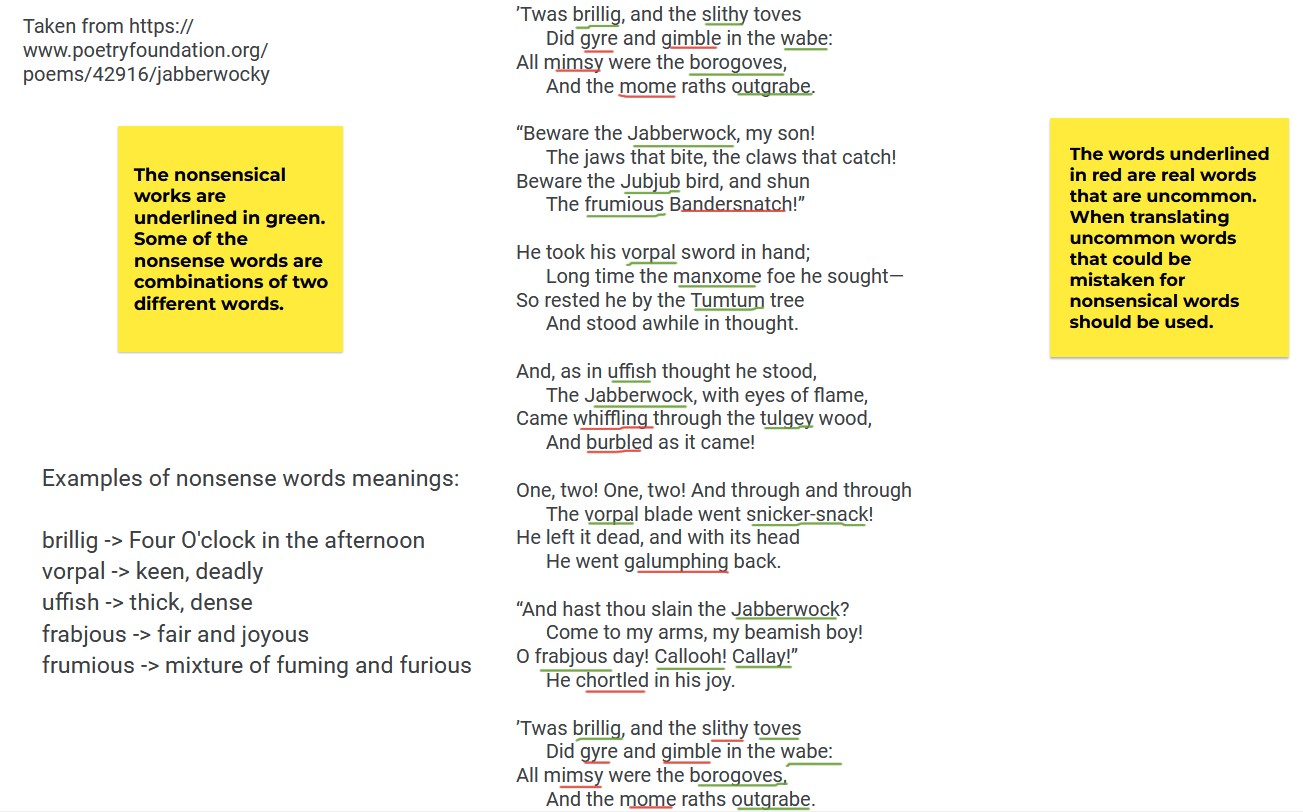
Drinking Alone in the Moonlight by Li Bai
Li Bai was a poet from 8th century China. The following poem, "Drinking Alone in the Moonlight," is regarded as one of his best works. However, there are multiple English versions of the poem, most likely a result of multiple translations. How do these poetic translations compare to a computer-generated translation--arguably the most direct translation--and what does this reveal about translating poetry over two vastly different languages?
The original Chinese poem is featured in the next slide with a translation of the poem made by Google Translate, followed by two English versions that are found on multiple websites.
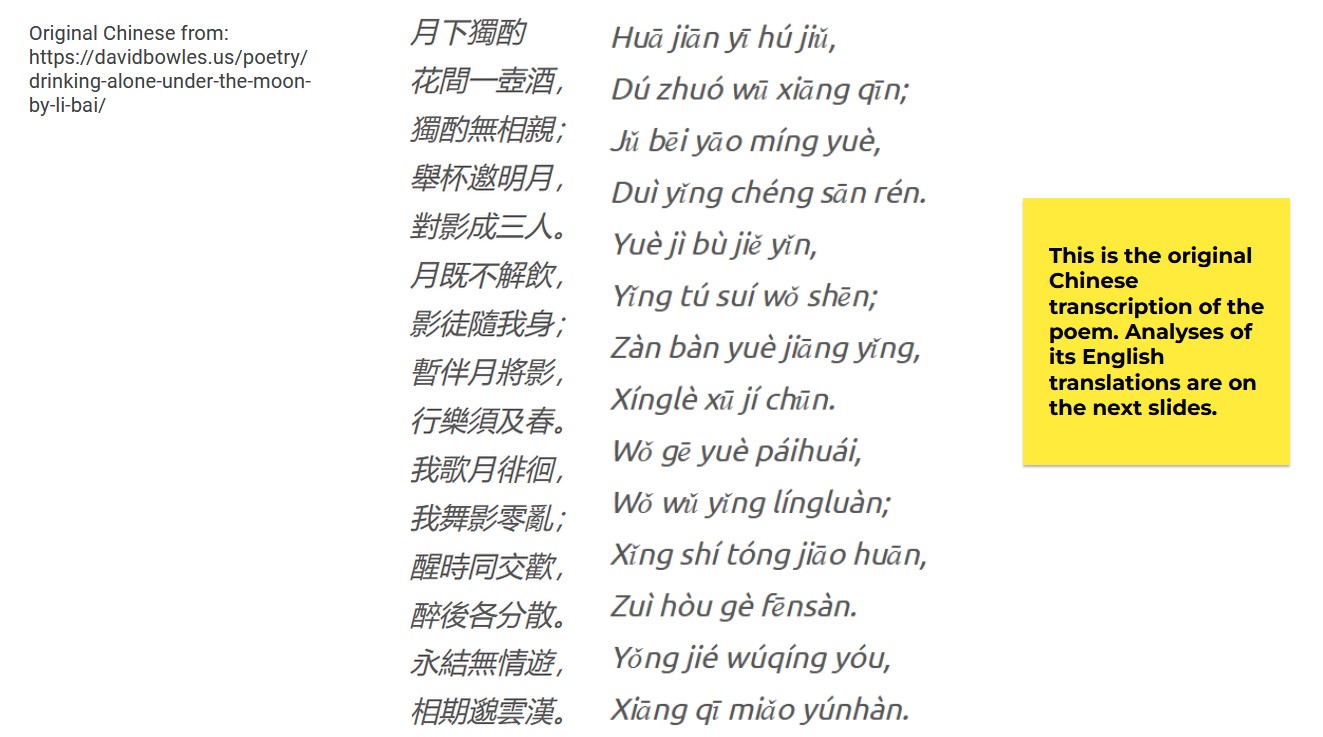
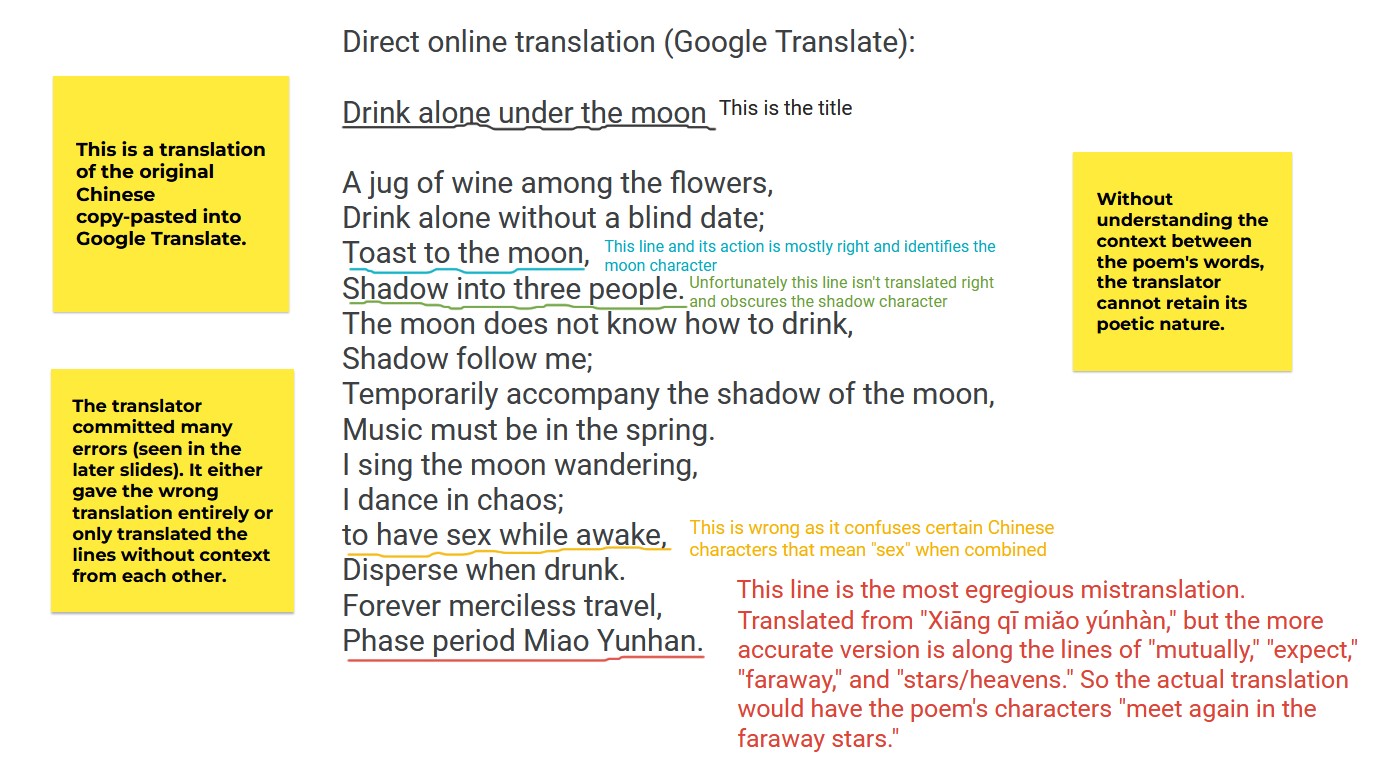
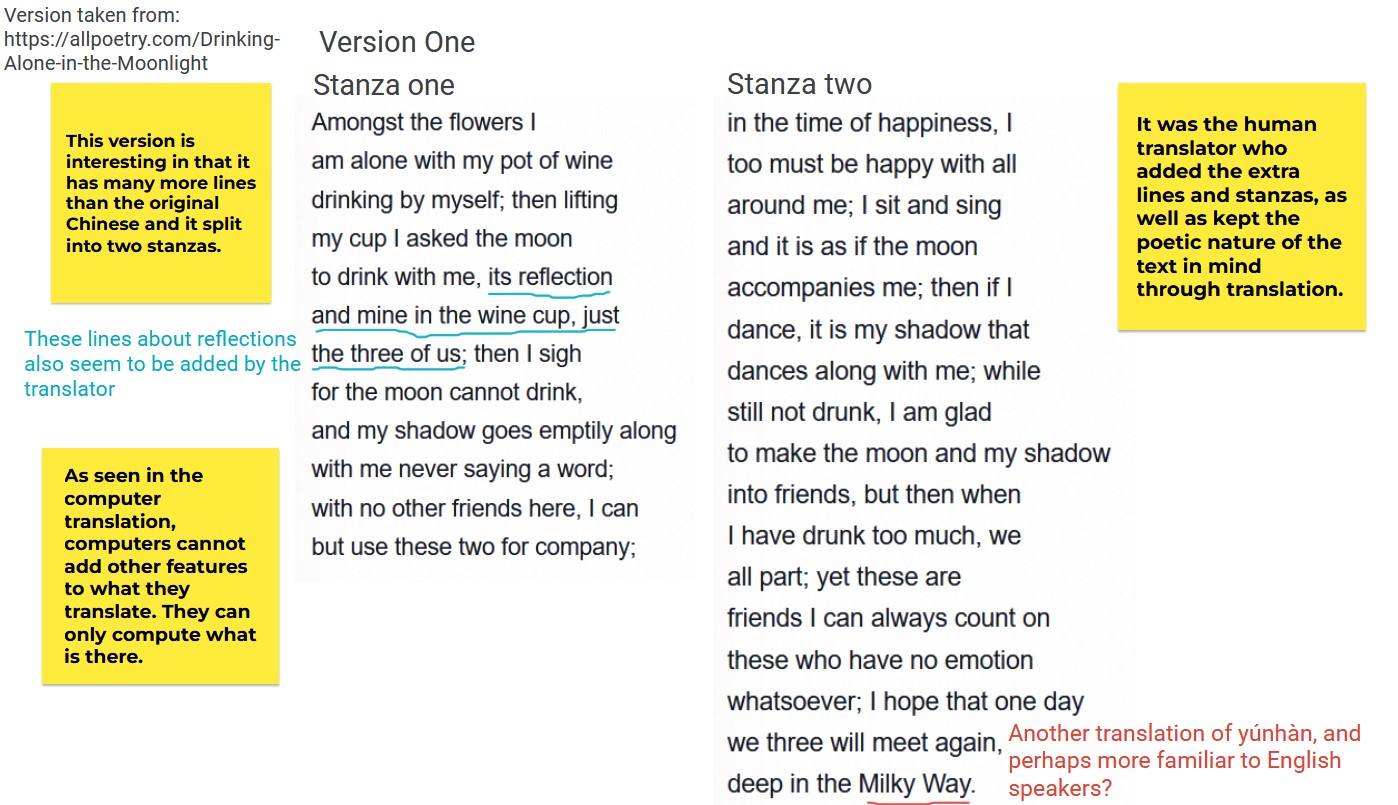
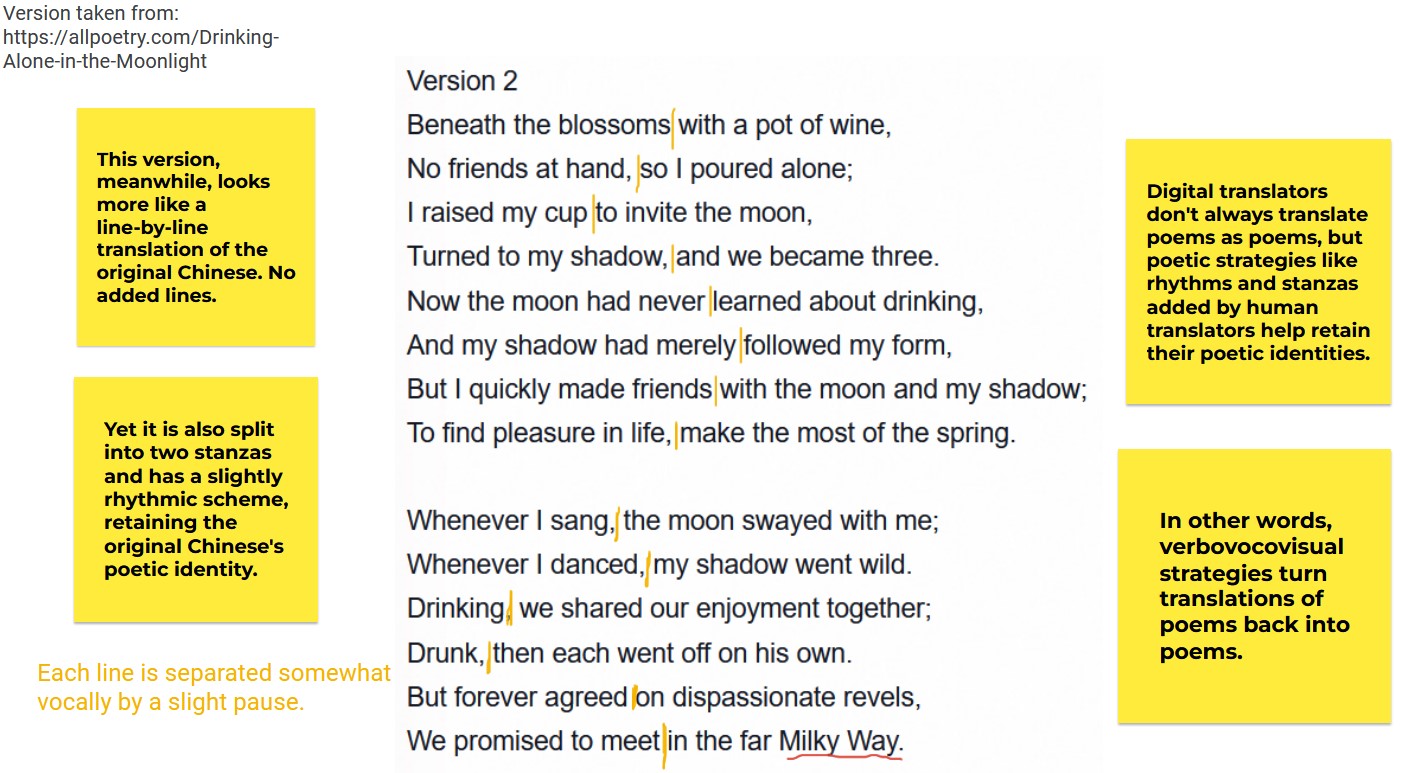
The Odyssey by Homer
The Odyssey is one of the most well known works of classical Greek literature. While it has certainly been well preserved, many modern translations strip the work of many of its poetic traits. The poem was originally preserved orally so it was important for it to be rhythmic almost like a catchy song so it would be easier to remember. However, as it has been written down and translated into languages where those initial rhythmic traits aren't as easily preserved that element has been lost. Recently a translator named Emily Wilson made an effort to translate the work into mostly iambic pentameter to more accurately reflect the way the poem might have sounded to a historical Greek reader at the expense of some changes to word choice and order. While Wilson's translation tells the same story, it is at times very different then the original. However it preserves an element that would be lost via even the most faithful of direct translations.
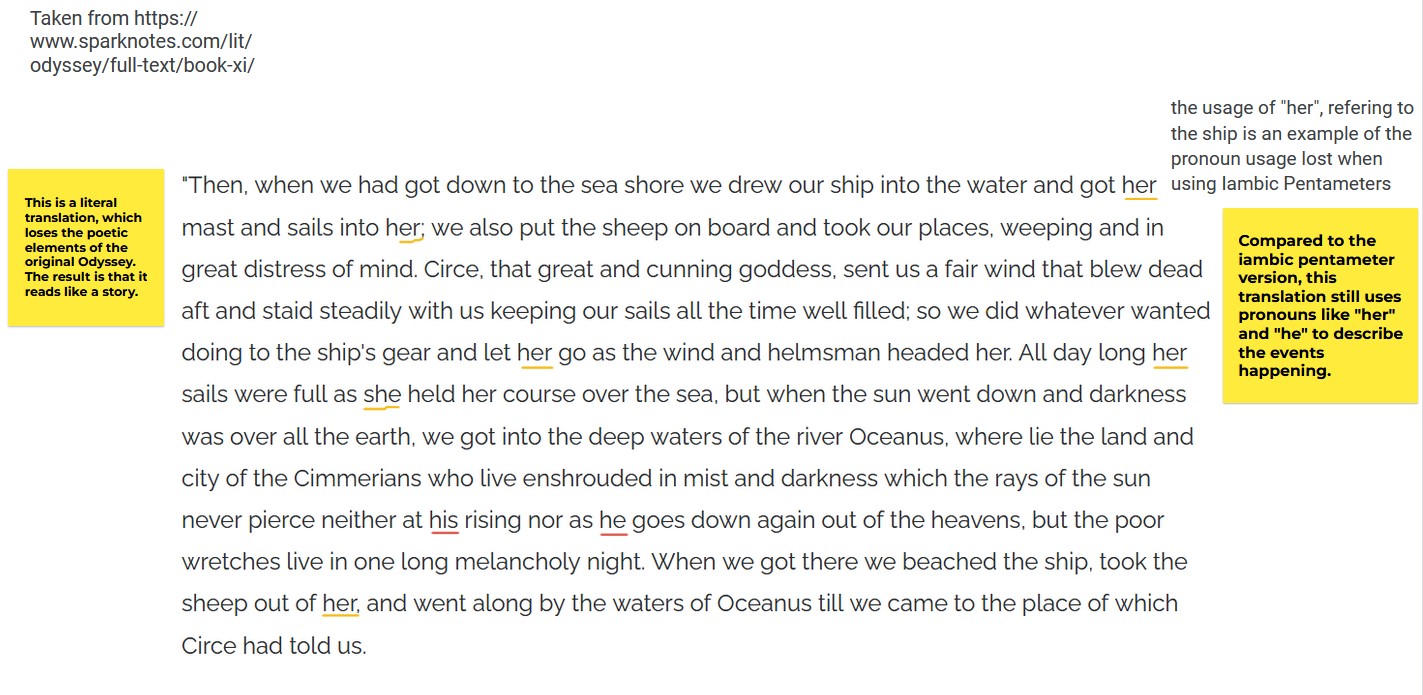
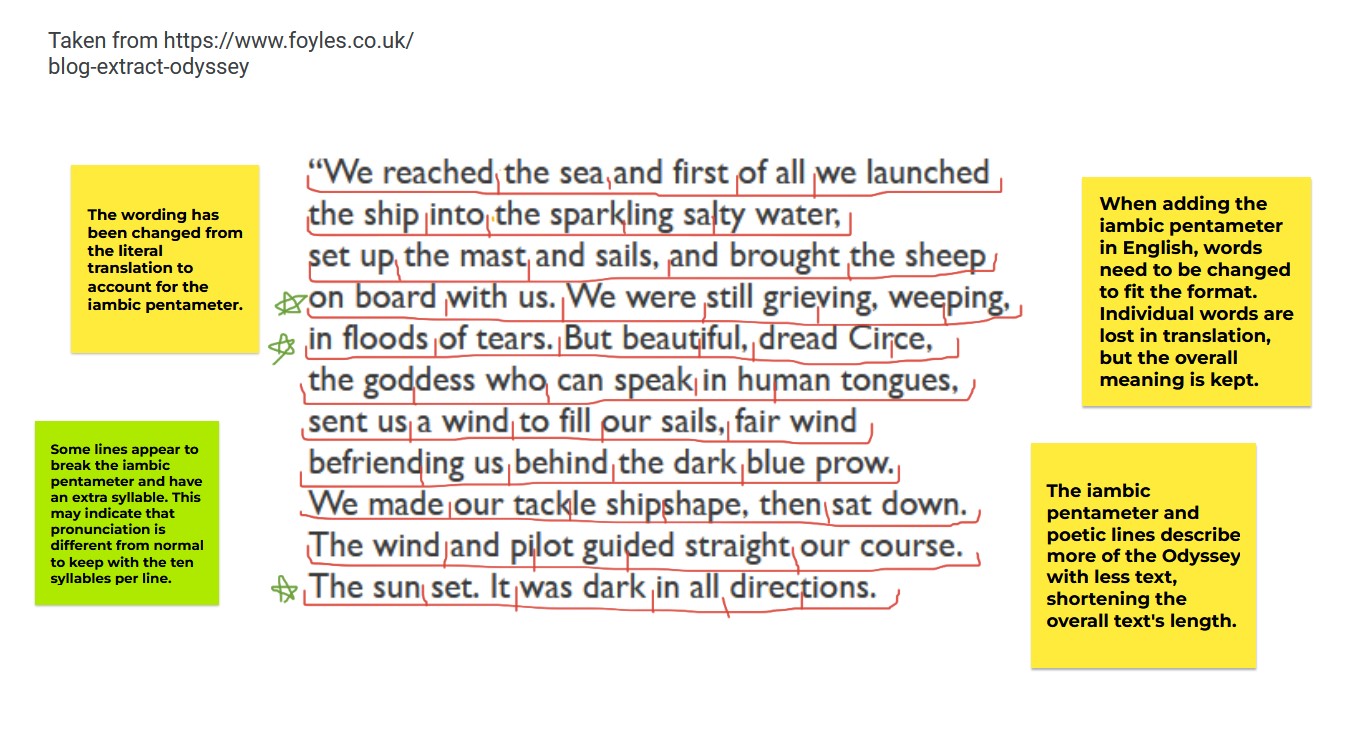
Demain dès l'aube by Victor Hugo
"Demain dès l'aube" is a well-known poem from French author and poet, Victor Hugo, originally written in his native French. Being romance languages, English and French are similar to each other in some respects and have a long history of translation between each other. The particular translation in the next slide, done by French teacher Camille Chevalier-Karlif, is an example of applying a more literal translation to a poem. As will be seen, such a translation removes what made the original French poem work. English readers can still identify it as a poem since the stanza and line structures remain, but the French's syllable and rhyming schemes are not translated over.
